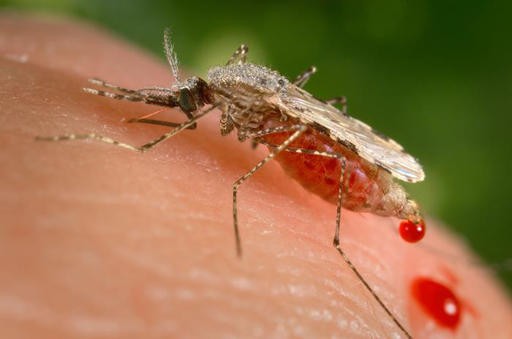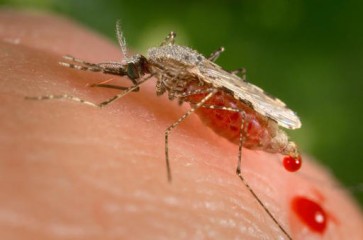Popular Reads
Top Results
Can't find what you're looking for?
View all search resultsPopular Reads
Top Results
Can't find what you're looking for?
View all search resultsReaching out to migrants to end malaria
In 2015, almost 70 percent of all malaria deaths were children under five. This year’s theme of World Malaria Day is “End malaria for good.”
Change text size
Gift Premium Articles
to Anyone
 In this photo provided by the Centers for Disease Control and Prevention (CDC ), a feeding female Anopheles stephensi mosquito crouching forward and downward on her forelegs on a human skin surface, in the process of obtaining its blood meal through its sharp, needle-like labrum, which it had inserted into its human host. A powerful new technology holds the promise of rapidly altering genes to make malaria-proof mosquitoes. (CDC via AP/James Gathany)
In this photo provided by the Centers for Disease Control and Prevention (CDC ), a feeding female Anopheles stephensi mosquito crouching forward and downward on her forelegs on a human skin surface, in the process of obtaining its blood meal through its sharp, needle-like labrum, which it had inserted into its human host. A powerful new technology holds the promise of rapidly altering genes to make malaria-proof mosquitoes. (CDC via AP/James Gathany)
T
he International Organization for Migration (IOM) has joined the World Health Organization (WHO), The Global Fund (for AIDS, TB and Malaria), the Roll Back Malaria Partnership and other partners on World Malaria Day of April 25 to urge renewed efforts to prevent and eliminate the disease, which still kills over 400,000 people annually.
In 2015, almost 70 percent of all malaria deaths were children under five. This year’s theme of World Malaria Day is “End malaria for good.”
New methods of testing, the widespread distribution of insecticide-treated nets and the introduction of artemisinin-based combination therapies have contributed significantly to major reductions in malaria cases and deaths in the Greater Mekong Sub-region (GMS) — Cambodia, Laos, Myanmar, Thailand, Vietnam and China’s Yunnan province.
There has been a major decline in cases and deaths across the region over the last three years, the WHO finds. The six GMS countries cut their malaria case incidence by an estimated 54 percent between 2012 and 2015. Malaria death rates fell by 84 percent over the same period.
Yet drug resistance in many areas across the region, particularly in border areas, has required a change in strategy to “end malaria for good” in the Asia Pacific.
Migrant and mobile populations (MMPs) are considered as highly vulnerable to malaria for many reasons. The GMS region, home to some 300 million people, hosts some 4 million cross-border migrants, mainly in Thailand. Many others migrate internally in search of work.
Migrants often live and work in forest-related industries, agriculture or construction in remote rural areas, where the anophleles mosquito that carries the malaria parasite still exists.

















